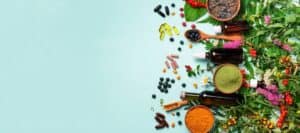Introduction to Vitamin B12
Vitamin B12, also known as cobalamin, is an essential vitamin that our bodies need to function properly. This vitamin plays a crucial role in the production of red blood cells and the maintenance of our nervous system. It makes our brain and nervous system work properly. Moreover, it is involved in the creation of DNA, the genetic code that makes us unique.
However, unlike most other vitamins, our bodies cannot produce vitamin B12 on their own. So we have to get it from our diet. Unfortunately, B12 is primarily found in animal products, making it challenging for vegans and vegetarians to get enough of this vitamin.
Vitamin B12 is water-soluble, which means the body can easily excrete excess amounts. However, it is also our body’s ability to store B12 in the liver. This means that B12 deficiency usually manifests itself only after several years of insufficient intake.
In addition, vitamin B12 is unique in that it contains a mineral found nowhere else in nature: cobalt. This is why vitamin B12 is also called cobalamin. Without enough B12, we can feel tired and weak and can have problems with our nerves and digestive system.
The importance of Vitamin B12 to the body
Vitamin B12 is vital to our bodies. Not only is it needed for the production of red blood cells, but it also helps our nerve cells function and is involved in the production of DNA. Red blood cells are responsible for carrying oxygen throughout our body. So without enough B12, we can feel tired and weak.
In addition, vitamin B12 is essential for the health of our nervous system. It helps produce the insulating layer around our nerve cells, known as the myelin sheath. Without this protective layer, our nerves would not be able to function properly.
Vitamin B12 also plays an important role in the production of DNA, the hereditary material in all our cells. Without enough B12, our bodies can have problems with cell division, which can lead to a variety of health problems.
In addition, vitamin B12 is involved in the metabolism of proteins and fats. It helps our bodies take the nutrients from our food and convert them into energy.
Why is Vitamin B12 a challenge for vegans?
Vitamin B12 is mainly found in animal products such as meat, fish, eggs and dairy products. Therefore, it can be challenging for vegans to get enough of this vitamin. Although some plant sources of B12 exist, they are often insufficient to meet the daily requirement of this vitamin.
Another problem is that the bioavailability of B12 from plant sources is often lower than that from animal sources. This means that even though a plant-based food contains B12, our bodies may not be able to absorb and use it as efficiently as the B12 from animal sources.
Moreover, the way we prepare our food can also affect the amount of B12 we take in. Cooking, for example, can significantly reduce the amount of B12 in food.





